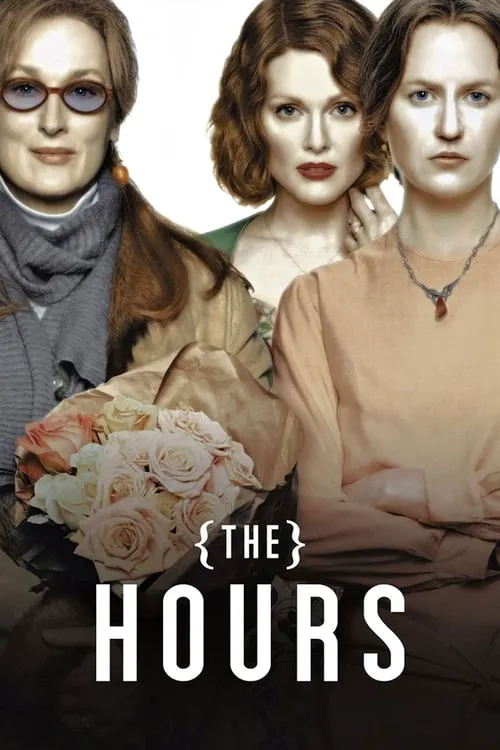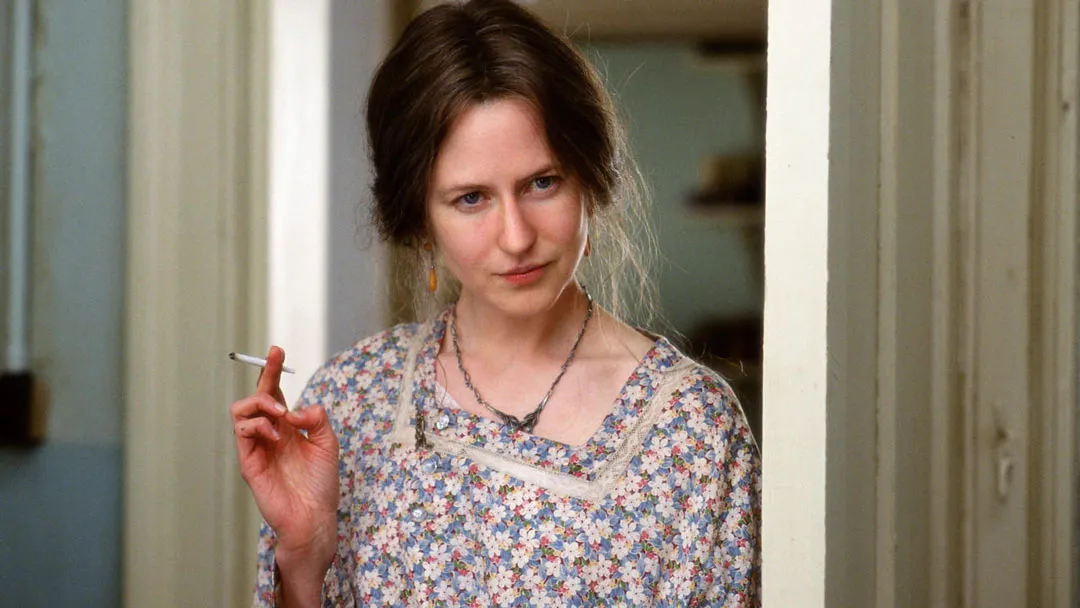The Hours

Plot
Laura Brown, a housewife living in Los Angeles in the 1950s, stands at the kitchen sink, staring out the window as she prepares breakfast for her husband and young son. As she mechanically performs her domestic duties, her mind wanders to a novel called Mrs. Dalloway by Virginia Woolf. The narrative within the novel, in turn, is a parallel story that revolves around Clarissa Dalloway, a high-society matron who prepares to host a party in London on the eve of World War I. While Laura's mind is consumed by the fictional world, her husband, Dan Brown, requests her presence in the study, hinting at his concern about her detachment from family responsibilities. Laura's response to her husband's demands reveals the stifled desires and frustrations that threaten to suffocate her. Fearing the consequences of disappointing her husband, Laura decides to abandon the domestic chores, locking herself in her bedroom to re-read Mrs. Dalloway. The emotional resonance of Clarissa's struggles resonates with Laura's own unfulfilled aspirations, further deepening her despair. Meanwhile, in the present day (2001), we are introduced to Clarissa Vaughan, a successful book publisher, who is preparing to commemorate the tenth anniversary of her dear friend, Richard's, birthday. As Clarissa busies herself planning the party, memories of the past surface, painting a picture of their intense friendship and its eventual dissolution due to Richard's personal struggles with HIV and depression. Clarissa has known Richard for over ten years, witnessing his transformation from a charming, successful poet into an ailing individual struggling with the consequences of living a life that was not fulfilling. As the party preparations unfold, the emotional fragility of Clarissa begins to manifest itself. Her anxieties about Richard's impending fate weigh heavily on her conscience, and, sensing the impending doom, she tries desperately to recapture the essence of their past connection. The final chapter in The Hours revolves around 24-year-old Virginia Woolf, who struggles with mental instability, chronic depression, and the constraints of societal expectations. During a brief respite from her husband's family's pressure, Virginia embarks on a stroll in the garden, reflecting upon her life and the writing process that consumes her. Her introspective musings are punctuated by a vivid recollection of her own desire for individual freedom, as she reminisces about her marriage to Leonard and their relationship with the Bloomsbury group. As the story evolves, the connections between the three women begin to blur, drawing readers into their respective worlds. While Clarissa struggles to find meaning in her life, Laura remains fixated on the fictional world of Clarissa Dalloway, finding a sense of kinship in her own repressed desires. Meanwhile, Virginia's mental struggles create a haunting presence that underscores the tension between creative expression and societal expectations. Through The Hours, the boundaries dissolving between reality and fiction, create a poignant reflection on the universal human quest for meaning, self-discovery, and a sense of belonging. As the lives of Laura, Clarissa, and Virginia become intertwined, the narrative converges toward a poignant, bittersweet resolution. In this climactic convergence, each character comes to recognize the interconnectedness of their lives and acknowledges the sacrifices they made in their search for identity and purpose. Ultimately, the transcendent moment they share – though tinged with melancholy and loss – provides a testament to the profound impact that women's literature has on the human spirit. By transcending temporal and spatial boundaries, the characters of The Hours transcend the confines of their individual existences, forming a collective testament to the power of creative expression to forge connections that transcend mortality.
Reviews
Avery
Dear Leonard, to look life in the face, always. To look life in the face and know it for what it is. At last, to know it, to love it... for what it is. And then, to put it away. Leonard, always the...
Molly
Julianne Moore delivers a poignant and deeply moving performance.
Phoenix
Nicole Kidman's portrayal of Woolf is deeply immersive.
Recommendations





